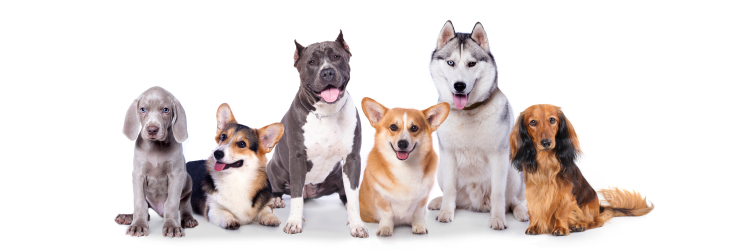Can AI Help You Find Your Next, Best Doggo?
Dogs have been known as “Man’s Best Friend” for ages, although that phrase has morphed over the years: good boy, pupper, floof, furkid, and woofers are only some of the things we affectionately call our dogs. In fact, the internet coined an entire language to express this love affair called DoggoLingo or DoggoSpeak. It contains words like bork, hooman, smol, teef, and beans. Animals other than dogs are also included in this language: beavers, seals, or otters, for example, are waterpuppers, bats are skypuppers, and birds are birbs.
Soon, you may be able to use an app to match you with your new good boi.
A multi-disciplinary team of canine behavior and artificial intelligence experts has developed an AI algorithm that allows dog training agencies to evaluate a working dog’s personality more quickly and accurately. This evaluation helps determine whether a dog can succeed in long-term careers, like police or service animals.
They believe that shelters could also use their personality test to match hopeful adopters to their best hopeful adoptees, reducing the number of animals returned because they weren’t a good fit.
The scientists, from the University of East London and the University of Pennsylvania, researched on behalf of their sponsor, Dogvatar, a Miami, Fla.-based canine technology startup. The AI’s algorithm draws from nearly 8,000 responses to the well-known Behavioral Assessment & Research Questionnaire (C-BARQ) as its training. C-BARQ has been the standard for over 20 years.
“C-BARQ is highly effective, but many of its questions are also subjective,” said co-Principal Investigator James Serpell, a professor of ethics and animal welfare emeritus at the UPenn School of Veterinary Medicine.
The algorithm works by clustering responses to C-BARQ questions into five main categories:
- excitable/attached
- anxious/fearful
- aloof/predatory
- reactive/assertive
- calm/agreeable
These personality points are informed and identified by the most influential attributes, like “excitable when the doorbell rings” or “aggression toward unfamiliar dogs visiting your home.” Each of these attributes has a “feature importance” value, which defines how much weight the attribute receives in the AI’s calculations.
Dogvatar and its collaborating researchers intend to conduct further research into potential applications for their algorithm.
So, before you find your next smol floof with the perfect boopable snoot, your best fren with a great awoo or derpy sploot, and definitely before you find a cloud yapper with toe beans that never stop tippy tapping, who likes pats and chimkin nuggers snaccs before they get sleppy, and has the cutest blep or mlem, check out Dogvatar and see if they’ve made an app.
The team announced their dog personality testing algorithm results in their paper, “An Artificial Intelligence Approach To Predicting Personality Types In Dogs,” published Jan. 29, 2024, in Scientific Reports.

